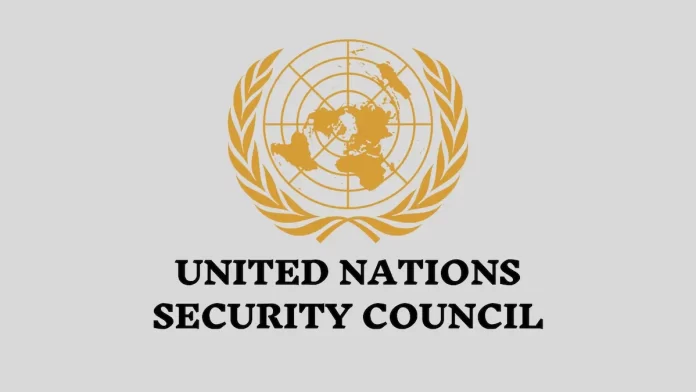Indian on Friday abstained from a United Nations Security Council vote condemning the Russian invasion of Ukraine. Notably, China and UAE also abstained from condemning the Russian actions.
United Nations Security Council met hurriedly on Friday after Russia launched an all-out invasion of Ukraine, a western inclined nation a few days back. The 15 member security council met to deplore the Russian invasion of Ukraine.
As was expected Russia vetoed the draft U.N. Security Council resolution condemning its aggression on the former Soviet republic. China, India, and United Arab Emirates abstained from the vote.
The remaining 11 council members voted in favor showing Russia’s growing international isolation. The draft resolution is now expected to be taken up by the 193-member U.N. General Assembly.
Ukraine’s beleaguered President Volodymyr Zelenskyy thanked all members of the UN Security Council who voted against Russia and in Ukraine’s favor.
“Grateful to all members of the UN Security Council who voted to stop Russia’s treacherous attack on Ukraine and UN Charter. The veto of Russia is a bloodstain on its plaque in the Security Council, the map of Europe and the World. The anti-war coalition must act immediately”, he said in a tweet.
Grateful to all members of the UN Security Council 🇦🇱 🇧🇷 🇫🇷 🇬🇦 🇬🇭 🇮🇪 🇰🇪 🇲🇽 🇳🇴 🇬🇧 🇺🇸 who voted to stop 🇷🇺 treacherous attack on 🇺🇦 & 🇺🇳 Charter. The veto of 🇷🇺 is a bloodstain on its plaque in the Security Council, the map of Europe & 🌎. Anti-war coalition must act immediately!
— Володимир Зеленський (@ZelenskyyUa) February 25, 2022
Meanwhile, India’s refusal to condemn the Russian invasion of a sovereign state baffled many given its past advocacy of a rule-based international order.
Significantly, Article 51 of the Indian constitution obliges the State to promote international peace and security; maintain just and honorable relations between nations; foster respect for international law and treaty obligations in the dealings of organized peoples with one another; and encourage settlement of international disputes by arbitration.
According to Happymon Jacob who teaches India’s Foreign Policy at the School of International Studies, Jawaharlal Nehru University, India’s position to the Russian aggression on Ukraine reeks more of a geopolitical vulnerability and strategic weakness.
“India’s position also shows the unmistakable indication that when it comes to geopolitics, New Delhi will choose interests over principles” he adds further.
